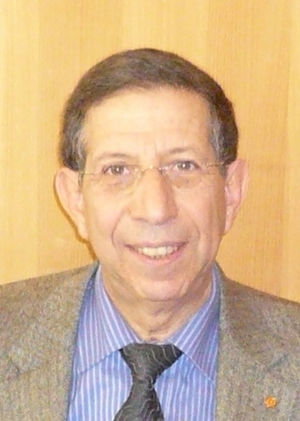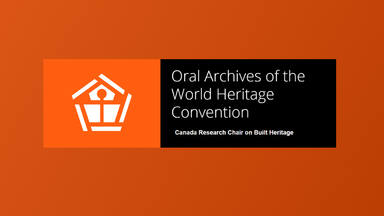
Interview
Mounir Bouchenaki
World Heritage Convention
Mounir Bouchenaki is an Algerian historian and archaeologist. He holds a Ph.D. in Archeology and Ancient History from the University of Aix-en-Provence and worked for the Algerian government from 1969 to 1981.
Appointed Director of Cultural Heritage at the Ministry of Information and Culture in 1976, he was responsible for the preparation of six Algerian nominations for World Heritage. In 1982, he joined the Division of Cultural Heritage of UNESCO responsible for international safeguarding campaigns. After becoming its director in 1992, he regularly attended statutory meetings for World Heritage while overseeing sensitive issues, such as the one in Jerusalem. He was briefly Director of the World Heritage Centre between 1999 and 2000 before becoming Assistant Director General for Culture.
In 2006, Mounir Bouchenaki left UNESCO to become Director General of ICCROM, a position he held until 2011. Since 2012, he has served as an advisor to the Director General of ICCROM and to the Director General of UNESCO, in addition to directing the operations of the Arab Regional Center for World Heritage in Bahrain. His distinctions include the 2000 ICCROM Award and the rank of officer de l’ordre des Arts et des Lettres français. He is the author of Tipasa, site du patrimoine mondial (ENAG, 1988) and several articles, including "The Extraordinary Development of Museums in the Gulf States", published in MUSEUM International in 2011.
Interview with
Mounir Bouchenaki
5 February 2009, Paris, France
The following audio excerpts are from an interview with Mounir Bouchenaki by Christina Cameron and Mechtild Rössler the 5th February 2009 at UNESCO headquarters in Paris, France. The interview touches on his long involvement in UNESCO, the creation of the World Heritage Centre and the various impacts that the “World Heritage” label has had on specific sites. Mounir Bouchenaki's vision of the Convention is also enriched by his twofold experience within both UNESCO and ICCROM.
- 1. The World Heritage Convention
- 1a. Involvement of Mounir Bouchenaki in World Heritage
- 1b. Aims of the Convention
- 1c. The World Heritage List
- 1d. Key decisions for the implementation of the Convention
- 1e. Successes and limits of the Convention
- 2. The World Heritage Committee
- 3. The advisory bodies: IUCN, ICOMOS and ICCROM
- 4. The UNESCO Secretariat
- 4a. Establishment of the World Heritage Centre
- 4b. UNESCO's support for World Heritage
- 5. The participation of States Parties and international solidarity
Oral Archives of the
World Heritage Convention
Under the leadership of the Canada Research Chair on Built Heritage at the University of Montreal, an international team of researchers conducts interviews with pioneers of World Heritage to capture memories of important moments in the history of UNESCO Convention.
Launched in 2006, this initiative is part of the UNESCO History project that celebrated the 60th anniversary of the creation of UNESCO. The Oral Archives project records the precious witness of people closely associated with the creation and implementation of the Convention. Their recollections and views have greatly enriched the book by Christina Cameron and Mechtild Rössler, Many Voices, One Vision: The Early Years of the World Heritage Convention (Ashgate/Routledge, 2013).
